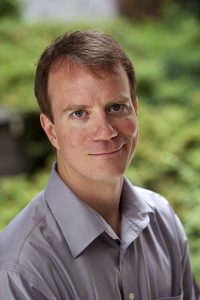
Corey Jaskolski captures beauty, history and humanity through technology.
The National Geographic fellow, inventor, photographer, explorer and tech developer will open Week Three’s morning lecture platform — themed “A Planet in Balance: A Week in Partnership with National Geographic Society” — at 10:45 a.m. Monday, July 8 in the Amphitheater.
Jaskolski’s background is in technology; he specializes in creating devices — archaeology search drones, robotic underwater cameras, color night vision platforms, 3D scanning camera traps and underwater laser scanners — for researching the world’s most challenging environments, like deep-ocean ridges, dense jungles and arid deserts. He holds multiple patents for his inventions.
“I’m an engineer primarily, and all of my work is focused on helping people see the world in a new light,” he said at the 2012 National Geographic Explorers Festival. “By that I mean developing technologies to help us peer into the world in a way we haven’t been able to before.”
His company, Hydro Technologies, builds sensing and imaging solutions for NASA and departments in the U.S. Navy and U.S. Special Forces. Additionally, Jaskolski co-founded Virtual Wonders, a company focused on capturing and sharing the world through 3D scanning. These efforts aim to make extraordinary images accessible and engaging to the masses.
“We’re so inundated by images,” Jaskolski said in a 2013 interview with MIT Technology Review. “What used to be so compelling in photography 30 years ago, these days people look at for only a quarter of a second on a mobile device.”
Moreover, Jaskolski’s imaging solutions aim to capture animals and places before the effects of climate change and human encroachment become irreversible. Jaskolski founded the nonprofit Digital Preservation Project, focused on preserving threatened archaeology through 3D scanning.
“We really are at a tipping point; a lot of these things that are beautiful and important to us right now are going to cease to exist in our lifetimes and our children’s lifetimes — whether it’s archaeology sites being destroyed or looted, or whether it’s animals going extinct,” he said at the 2012 National Geographic Explorers Festival.
Technology can also “stand where we can’t stand.” Jaskolski’s work has taken him into Antarctica’s frigid water, the reported tomb of Jesus, the Titanic wreckage, King Tut’s tomb, Chichen Itza and underwater caves containing the remains of Mayan human sacrifice victims — explorations made possible because of technology.
“What’s sitting 20 or 30,000 feet down there in places we haven’t been?” he said. “How many new species are down there to discover — ones that will rewrite our understanding of biology?”
Jaskolski’s work has appeared in National Geographic, on PBS and National Geographic TV channels, as well as in scientific journals; he serves on the Milwaukee Public Museum’s board of directors and holds degrees in physics, mathematics, electrical engineering and computer science from the Massachusetts Institute of Technology.
Jaskolski is one of six National Geographic Explorers on the morning lecture platform this week. National Geographic last partnered with the Institution for a week on “The Human Journey: Origins, Explorations and Preservation” in 2017.




